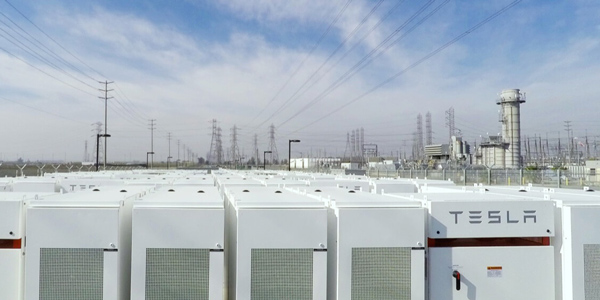By Jason Fordney
Tesla and other energy storage companies have urged CAISO to accelerate development of a new demand response product that is based on excess generation, but the grid operator says it must first address many concerns before including the product in any proposal.
The electric automaker and other storage proponents last week submitted comments on a draft proposal of CAISO’s Energy Storage and Distributed Energy (ESDER) Phase 2 initiative, which is unlikely to include establishment of a new proxy demand resource (PDR) that would consume load based on an ISO dispatch instruction, including providing regulation service.
CAISO wants to omit the load consumption product from the ESDER Phase 2 package to be presented to its Board of Governors for approval during its July meeting. (See CAISO Finalizes Rules for DR, Distributed Generation.) The ISO plans to defer the product until a third phase in order to better understand the limits of non-generator resources and other issues identified in its separate “multiple-use applications” initiative related to storage.
Increasing instances of generation oversupply and solar curtailments is creating urgency for a market mechanism that facilitates consumption of surplus power, and stakeholders have generally agreed that CAISO should not let jurisdictional rate issues interfere with development of the bidirectional PDR product capable of both consuming and producing energy.
“CAISO staff has indicated that owing to the retail billing implications of customer participation in a hypothetical load consumption product, such a product is too fraught to consider developing and implementing until such implications are addressed,” Tesla said in its comments. The company “strongly disagrees with this perspective,” provided that customers understand that their retail bills will be impacted by a decision to charge a storage device based on the billing determinants they are subject to pursuant to their retail tariff.
Tesla said that customers of the program should be able to determine for themselves whether to provide load consumption based on the difference between retail rates and wholesale pricing. Customers would find value in offsetting their retail bills through negative wholesale prices while helping California mitigate oversupply, the company contended.
While storage advocates are urging CAISO to develop a bidirectional PDR product, “a broad cross-section of stakeholders” said it should “take more time to resolve issues, consider options and coordinate with” the California Public Utilities Commission, CAISO said.
Among these concerns are the effects on retail rates, customer interest, demand charges and technical implementation issues.
Pacific Gas and Electric’s “excess supply pilot has delved into these issues and has reported that participants are concerned about rate impacts and ratcheting demand charges,” CAISO said in its revised proposal.
“Contrary to comments from the storage community, the CAISO does not view these barriers as jurisdictional in nature, but as real impediments to customer interest and robust customer participation in a bidirectional PDR product,” the ISO said.
Energy storage companies said CAISO should also work on enabling behind-the-meter storage to participate in the wholesale market via the PDR product. There is unused potential in BTM energy storage because to do so currently requires participation as a non-generator resource, said Tesla, energy storage company Stem and EV charger manufacturer eMotorWerks.
There has also been discussion within the Load Consumption Working Group, which Tesla said CAISO staff “appears to defer to stakeholders to revive and manage.” Storage companies want the ISO to take a leadership role in the working group.
The California Energy Storage Association (CESA), which represents more than 60 companies, said it “supports rapid action” on the group performing further work and having CAISO lead it, adding that the ISO should ensure ESDER promotes nondiscriminatory access to markets.
“CAISO should focus on how to ensure resources like PDRs can show up in CAISO markets to compete to provide services,” CESA said.





